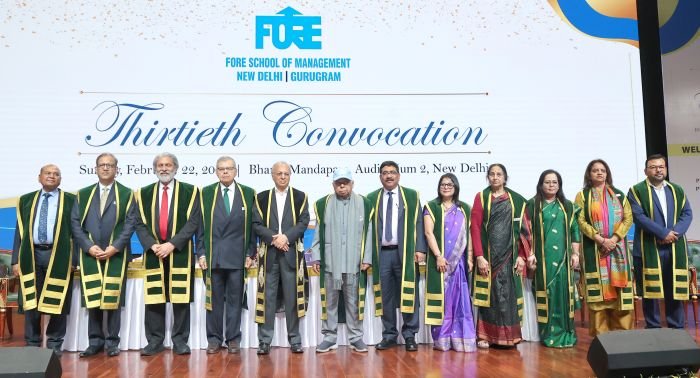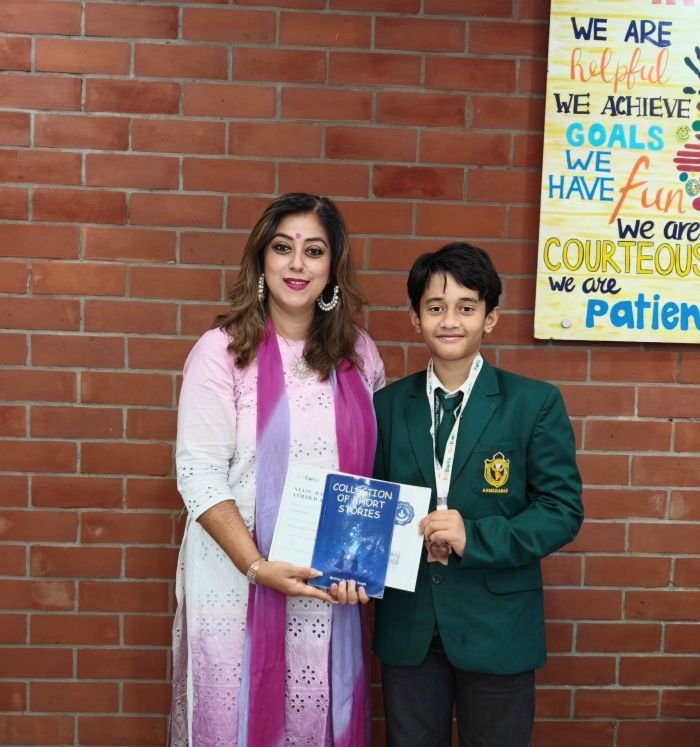
A multifaceted communication expert with two decades of media experience, Swagata Majumdar moves fluidly between the roles of writer, editor, radio jockey, voice coach, educator, and entrepreneur. Whether behind a microphone or a magazine desk, Swagata’s career is a testament to the enduring power of authentic storytelling and strategic expression.
Swagata Majumdar is not just a communicator — she’s a connector. Between cultures, industries, ideas, and generations. Her voice — whether spoken, written, or amplified through the people she mentors — continues to leave an indelible mark.
An alumnus of the University of Calcutta and the University of Leeds, UK, she currently serves as the Editor of @FOUR India, an international lifestyle and travel magazine. She’s also the founder of Boyaam, her entrepreneurial venture, and teaches part-time at Commits College, Bangalore.
From Kargil to the Newsroom: The Calling of a Career
Swagata’s journey into journalism began not in a newsroom, but during the Kargil War of 1999. Then a high school science student, she was captivated by the power of live reporting. The spark that lit her path came during the Kargil War of 1999. Then a science student, she found herself riveted by frontline reporting. “It was the first time I understood the power of journalism, something shifted in me. I didn’t have the words for it then, but I knew I wanted to be on that side of history,” she recalls. Until then, her writing had been a hobby – scribbling poems, winning school essay contests, jotting down scattered thoughts in notebooks. “After the Kargil War, it found direction. I shifted paths, chose media studies, and pursued print journalism with purpose. Jjournalism chose me as much as I chose it,” she reflects.
Now I wear many hats – but they all connect the dots of being a communication specialist who links people to ideas, stories, and each other with precision and soul.
After graduating in journalism from the University of Calcutta, Swagata began her career as a trainee in two leading national dailies, before expanding into radio and corporate communications. Having crafted leadership messaging, written editorials, interviewed celebrities, and created brand narratives, employee engagement campaigns, and public-facing content each requiring a different voice and lens, she realized her true strength lies in adapting across formats and audiences without losing authenticity. Her journey has taken her from Indian newsrooms to boardrooms, from scripting editorials at the last minute to voicing radio broadcasts in these two decades. From her earliest moments of journalistic inspiration to her current role as a voice coach and editor, her career has been defined by clarity, connection, and authenticity
Going to Leeds for Learning Across Borders
Swagata’s pursuit of excellence took her to the University of Leeds for a Master’s in International Communications. “The MA in International Communications at the University of Leeds offered exactly what I was seeking at that stage in my career. It was a globally relevant, highly ranked, and academically rigorous programme focused on media, culture, and strategic communication. It combined theory with practical application and attracted a truly international cohort, enriching every discussion. Leeds also challenged me to adapt to a new academic system, think globally, and communicate more sensitively and clearly. This experience, aligned with the British Council’s mission of fostering intercultural dialogue and understanding, shaped not only how I work but also how I present myself in international spaces today.”
“It was the perfect blend of theory and application,” she adds. Being chosen as an Intercultural Ambassador at Leeds was a highlight — a role that sharpened her leadership, cross-cultural communication, and expanded her worldview.
The transition from India’s educational system to the UK’s independent learning culture wasn’t easy, but she believes Indian students have what it takes. “It’s about being open to unlearning and engaging beyond grades,” she says. “Once embraced, the environment becomes a powerful space for personal and academic growth.”
Journalism in Flux — But Still a Good Career Choice
Swagata is a passionate advocate for journalism, even as it shifts under the weight of disruption. “The core of journalism hasn’t changed,” she says, “but the toolkit has. “According to her journalism today is more demanding than ever. The need for credible, well-researched reporting has never been more important in a world flooded with fake news, clickbait, and polarised opinions. “Whether political, environmental, or social, young journalists must remember they are documenting the first draft of history,” she says.
For the younger generation, knowing how to write a news story is no longer enough. Journalism now lives on podcasts, digital platforms, data dashboards, and even Instagram reels. This opens up new possibilities for storytelling but also requires sharper skills. “However, despite the disruption, journalism’s core purpose remains the same: to inform, to question, and to hold power accountable. What has changed is the toolkit. Today’s journalists must be as comfortable with long-form investigative writing as they are with creating, editing, and gaining social media traction for a minute-long explainer video of the same story,” she adds.
Her advice to aspiring journalists is grounded but optimistic: “Be curious, be adaptable, and hold on to your integrity. The world doesn’t need less journalism; it needs better journalism.”
The Power of Voice — and How to Train It
As a voice coach to both Bollywood aspirants and corporate leaders, Swagata sees the voice as an instrument — one that needs care and discipline. “Hydration, breath control, posture, and daily vocal exercises are essential,” she says. “Even ten minutes a day can transform tone and projection.”
She’s quick to emphasize that it’s not about having a ‘perfect’ voice — it’s about finding your most authentic and effective one. “The voice is a living instrument that needs care, consistency, and conscious training. Whether preparing for a voice-over or acting career, public speaking, or building your personal brand, your voice responds to how you treat it. bAs someone who has been a radio jockey and is now a voice coach to Bollywood aspirants and corporate leaders in voice and diction, I have seen how transformational consistent vocal exercise can be. Regular exercises, such as reading aloud and recording yourself, can help identify areas for improvement. Working with a voice coach can provide personalised guidance. Consistency is crucial; like any skill, voice improvement requires ongoing effort.”
“ In my classes, I stress the importance of daily vocal exercises. Even five to ten minutes daily can make a remarkable difference in tone, clarity, and projection. Commit to these exercises, and you will see the results. It’s not about having a ‘perfect’ voice but finding your most authentic and effective one,” she says.
A Moment of Recognition
In 2023, Swagata was recognised as a finalist in the British Council’s UK Alumni Awards. The accolade wasn’t just a personal milestone; it was a celebration of her purpose-driven work. “The recognition brought visibility and credibility,” she shares. “But the real reward was in meeting other finalists — each with stories rooted in impact.”
“The visibility it brought in India and among international circles was truly humbling, and it certainly opened many doors. It sparked conversations with professionals across sectors, drew attention to my body of work, and added credibility in spaces where global recognition matters.
“What I valued most, however, was the exchange of ideas with other finalists. Each person had a powerful story, shaped by their experience of studying in the UK through the British Council scholarships and applying that learning in their home countries. Those interactions were rich, humbling, and deeply inspiring.”
“The British Council Study UK Alumni Awards did not just spotlight my achievements; it celebrated the purpose. And for that, I remain genuinely grateful,” she adds.
What’s next for Swagata?
Swagata envisions blending emerging technology with storytelling, creating immersive media experiences that deepen audience engagement. She’s also committed to mentoring voice actors and launching a platform focused on underrepresented narratives and mental health — themes that have quietly shaped her work all along.
“I want to amplify voices that often go unheard. To use multimedia to democratise information and elevate stories that matter.”








